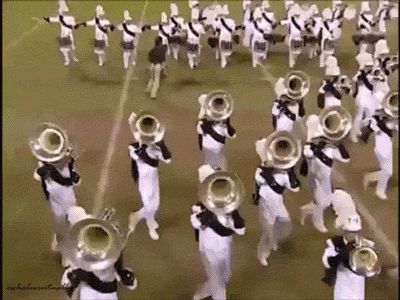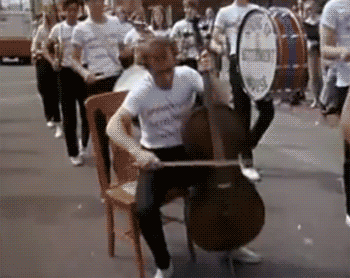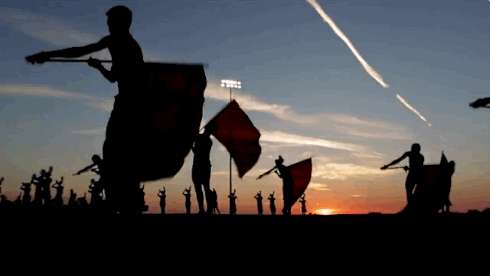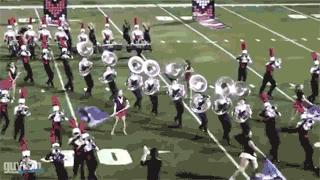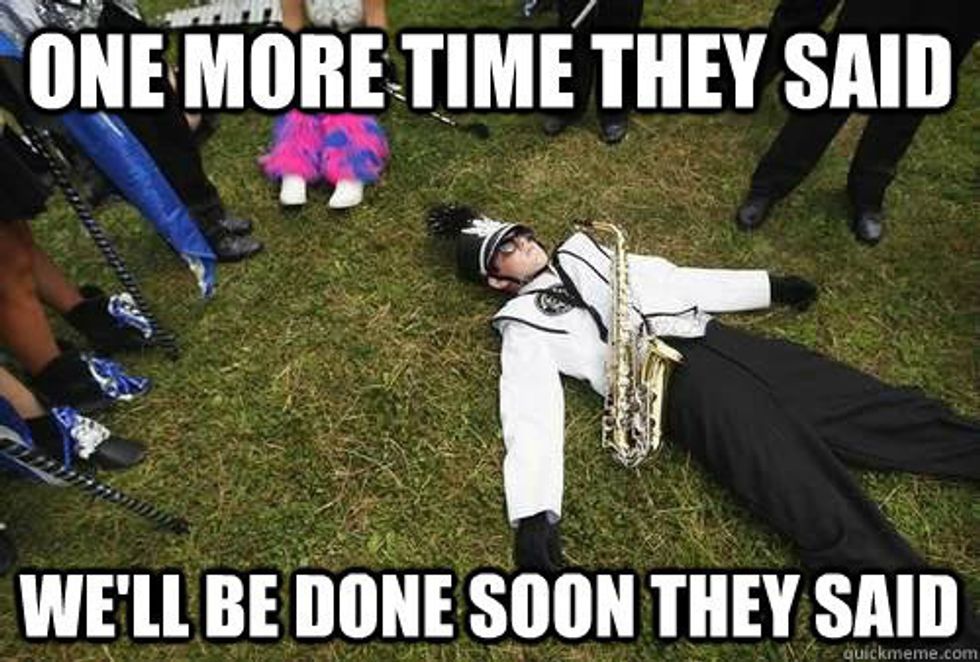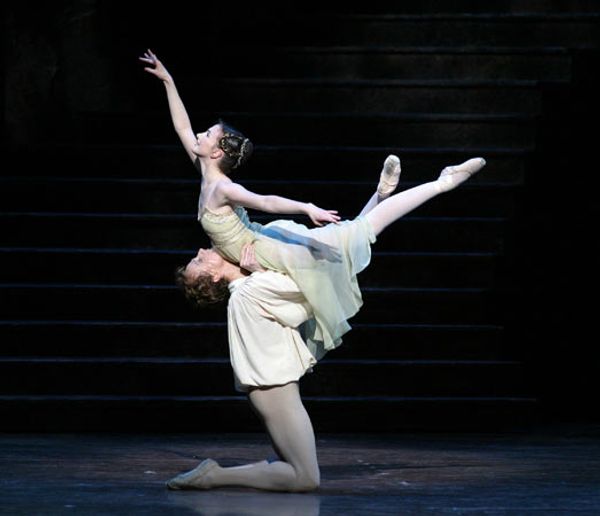Marching band. It's one of the oldest ways to celebrate something, and one of the things people most look forward to during parades. There have even been movies, TV shows, and even songs about it. Marching band is also used--in the form of pep band-- to jazz up sports games, and halftime shows; playing music the crowd knows and can get involved in. And it is also a vital part of many teens' middle school, high school, and college experience--including my own (I was in color-guard). One thing, though, that I hardly ever see discussed, that I think should be, is how band is a sport. Yes, really. I think it's even at the level of football. And here's why.
1. The definition
2. The time commitment
Free time? What's free time? Just like any other sports practice, band practice is held almost every day. Once someone joins band, it's time to say goodbye to their social life. During school, whatever free time you have during the day is occupied by band. After school is occupied by band. A free Saturday becomes a myth. Sunday is the time to recover... for about five minutes before you practice the song or movements you need to improve on.3. Especially if you're a part of something else
Marching band is already a huge commitment, but if you're part of color-guard or the drum line... the phrase 'free time' leaves your vocabulary. The practices start even earlier in the year, and go even longer. Not only are there separate judges for color-guard and drumline, but there are also separate competitions: Winterguard and Drum Corps. And both go all the way to international competitions. How many sports can you think of that have that?
4. The strength it requires
Marching itself, with the choreographed movements throughout the performance of the band, is already pretty exhausting. But, the people in it are also lugging around their instruments. Some of them, like the sousaphones (the big silver instruments above) weigh 30-35 pounds. And drums, depending on their size, come in at around 20. Even if the instrument isn't incredibly heavy, it has to be held up throughout the performance, or even the whole parade, which still requires some pretty serious arm strength. There's usually some great muscle hidden under a band uniform.
5. Including the mental strength
The first part of the mental strength band kids have comes from dealing with band practice. If the instruments or equipment won't be too damaged when practice is finished, a band director won't call it off. I've been through band practice in extreme heat, rain, snow, a hurricane... Well, just kidding. Only the first three.
The second part comes from the mental strength band kids need to get through a parade. They have to remember the entire performance choreography, their music, their cues, what they need to improve on, to check that they are still in line with those around them... and that's only one performance. But the song is played at least two or three times in a parade.
6. Field Band
Marching band is crazy, but field band is even crazier. And most bands do both. Everything mentioned above is multiplied by about 1,000. Practices can last all day, and even well into the night. And they go the whole band season. A multitude of songs are played, and the performances are even longer. Sometimes, there's even more running than marching. A good example of a field band is Ohio State (pictured above). How is that not a sport?
Marching band and field band are widely loved by those in it, and those who watch. Lots of time, effort, and even money go into each performance you see. I believe that marching band should be given the recognition it deserves and finally be called a sport.




